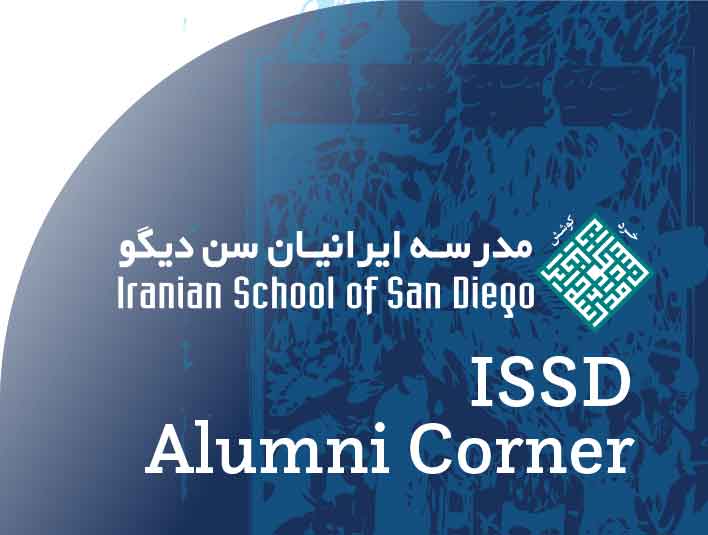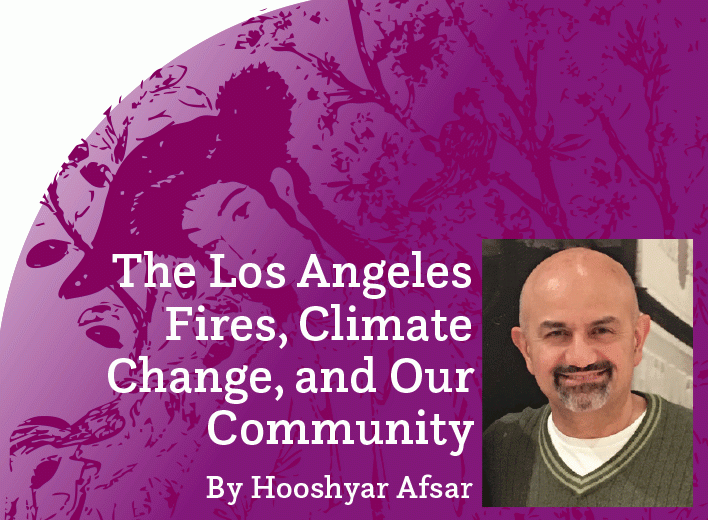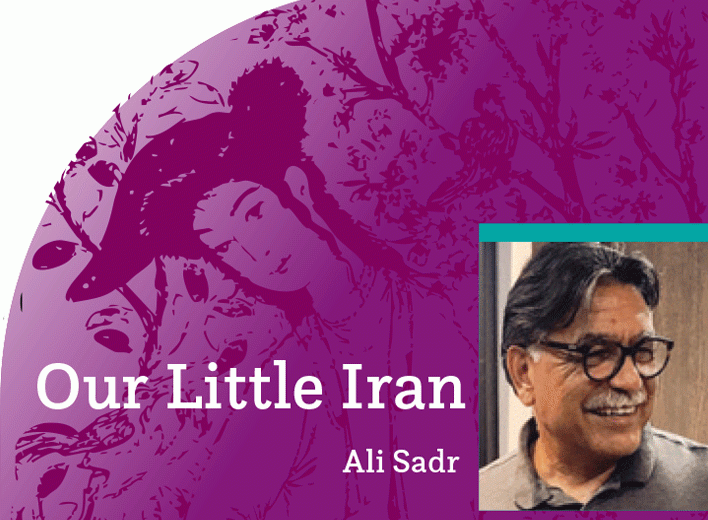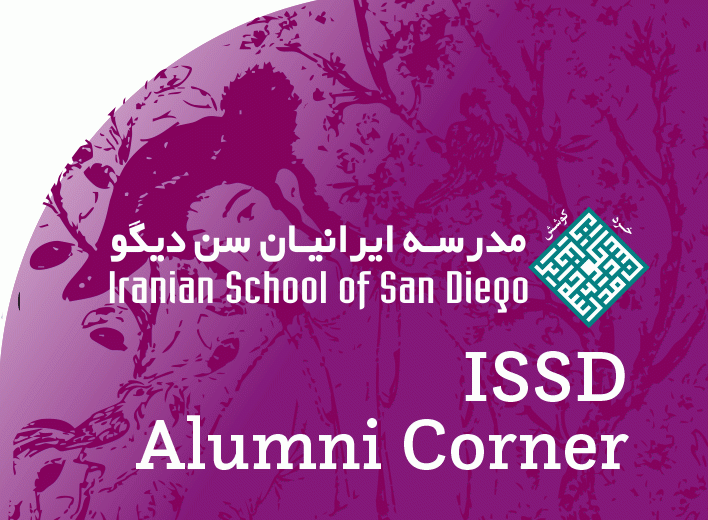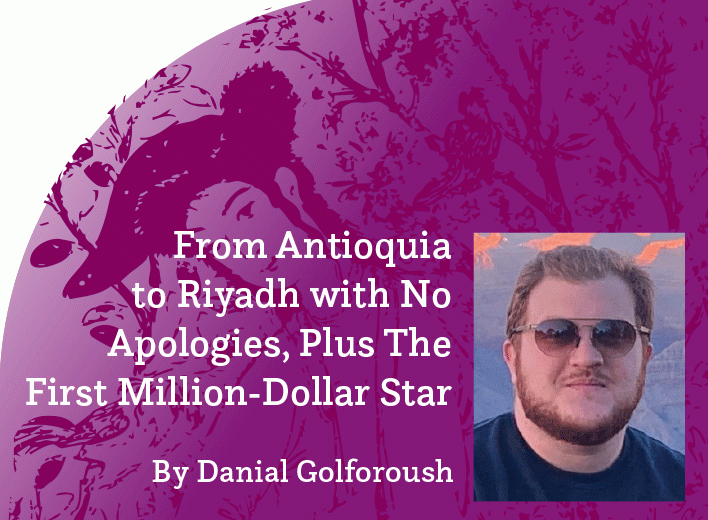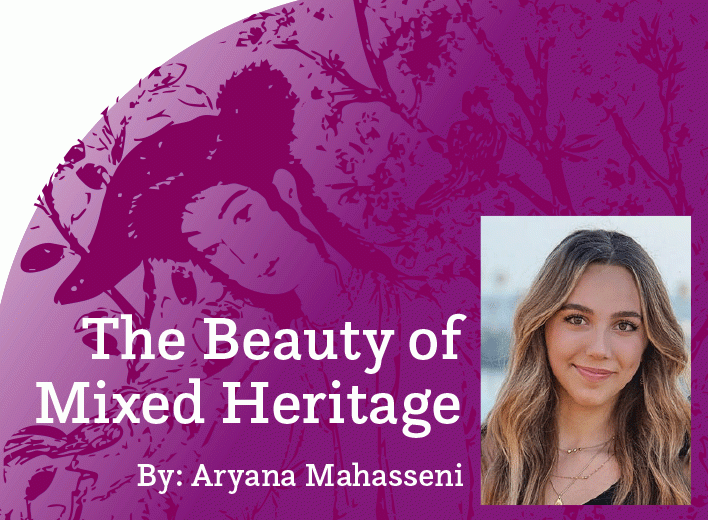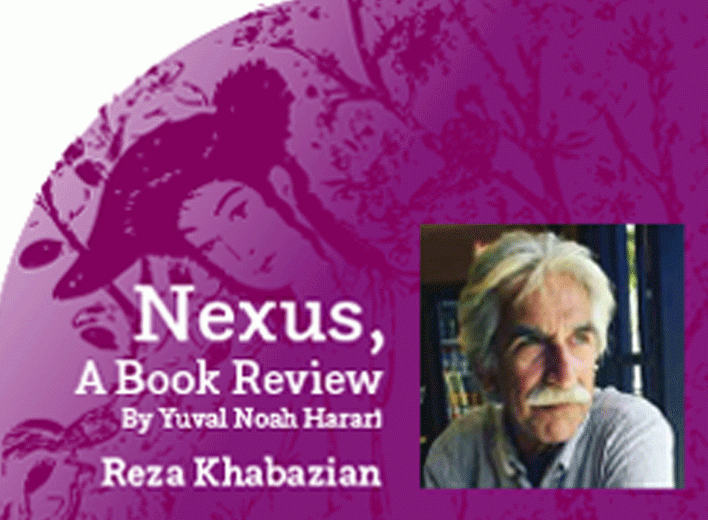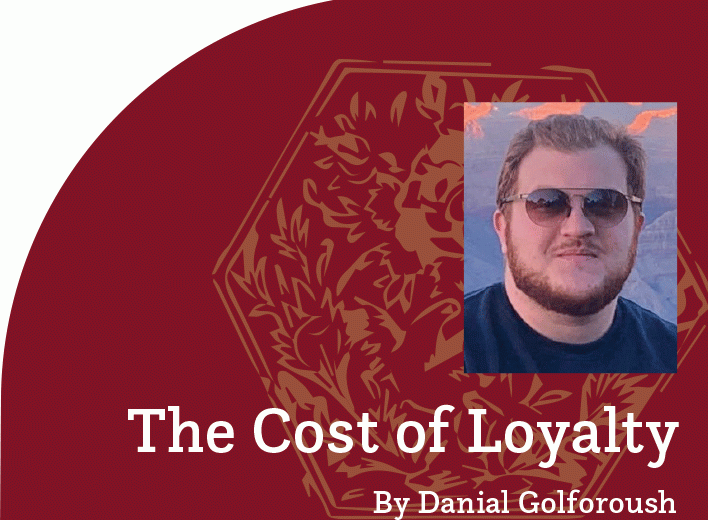ISSD Alumni Corner
The Iranian School of San Diego boasts a significant history, having been in operation since 1988, and has positively impacted numerous students and families over the years. The school takes pride in its extensive alumni network, consisting of successful individuals who have made notable contributions to both the Iranian American and global communities. Many alumni now have children enrolled at ISSD, establishing a strong multi-generational bond with the school. In an effort to showcase these accomplishments and underline the value of ISSD, Peyk is highlighting profiles detailing the lives and experiences of the school’s graduates. We are reaching out to select ISSD alumni with a series of questions to not only check on their well-being, but also to introduce them to current students and parents. These alumni could potentially serve as significant role models for the present and upcoming student body.
This interview marks the beginning of our series:
Niema Moshiri, PhD, Associate Teaching Professor, University of California, San Diego
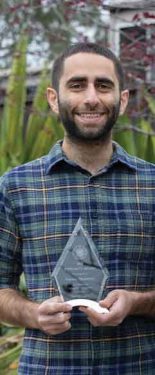
During which years did you attend ISSD, and for how long?
I think I was at ISSD between 1998 and 2005.
Can you share any fond memories or amusing anecdotes from your time at ISSD?
One of my fondest memories from my time at ISSD was playing with my ISSD classmates during the break time in the middle of the school day. Growing up in the southern parts of San Diego County, my school didn’t have any other Iranian American students, and while I had close friends in my area, I enjoyed having a community of other Iranian American kids to play with. Even just playing Game Boy or soccer with other kids who had shared experiences with me was a great experience.
Are you still in contact with fellow students, teachers, or staff from ISSD?
Yes, I am still in contact with fellow students, teachers, and staff from ISSD, especially in recent years as all of my ISSD classmates are entering our 30s and are starting to get married. It’s great reconnecting with ISSD folks to see how everyone has grown.
In what ways has your education at ISSD influenced your relationship with your extended family and cultural heritage?
From a very concrete perspective, I learned how to read and write in Farsi because of ISSD, and while I learned how to speak Farsi at home, my speaking abilities improved through ISSD. As a result, I have been able to communicate directly with my extended family in ways I wouldn’t otherwise be able to without my education at ISSD. This is especially important in the context of my mom’s side of the family: her relatives left Iran, but went all over the world (rather than all moving to the United States). As a result, many of my relatives who are closer to my age speak different languages as our primary language (e.g., French), and Farsi is the unifying language we can all use to communicate. From a more abstract perspective, the ISSD community, the music performances, the plays, etc., all gave me insights into the culture and history of my Iranian heritage.
What are your current endeavors in terms of career, family life, and volunteering?
I am currently a professor in the Computer Science & Engineering Department at UC San Diego, where I conduct Bioinformatics research and teach Computer Science classes. My research focuses on viral evolution and epidemiology, and throughout the COVID-19 pandemic, I worked with other researchers in San Diego County to develop analysis tools in order to process SARS-CoV-2 sequence data collected throughout the county in order to track the prevalence, spread, and evolution of the virus within San Diego.
In terms of family life, I am happily married and hope to live in San Diego for the rest of my life. In terms of volunteering, having grown up in southern San Diego County, the K-12 schools in my area were very underserved, and as a result, my classmates and I often missed enriching academic opportunities that were enjoyed by K-12 students in the better-resourced parts of San Diego County. Inspired by those experiences, I am passionate about K-12 educational outreach in underserved areas of San Diego County, with a particular focus on trying to introduce students to the fields of computing and engineering.
What are your aspirations for the future of ISSD, and what advice would you offer to families with children at ISSD or considering enrollment in the future?
My main hope for the future of ISSD is that it will continue to flourish and give future students the same amazing experiences I enjoyed: the educational aspects of ISSD were of course extremely helpful for me to be able to read, write, and speak Farsi as well as to learn about the culture of my heritage, but more importantly, in my opinion, the community ISSD provides was extremely impactful on my childhood development. If my past experiences in ISSD are at all representative of how ISSD is operating today, I would highly encourage families with children to participate in ISSD. Beyond the educational aspects of ISSD (which are, of course, excellent), not only does it give kids the opportunity to socialize with other kids with shared experiences, but it also gives a sense of community to the parents, who are also living a shared experience of raising kids in the United States. It was an incredibly enriching experience for me, and I wish that same enrichment for other folks as well.

